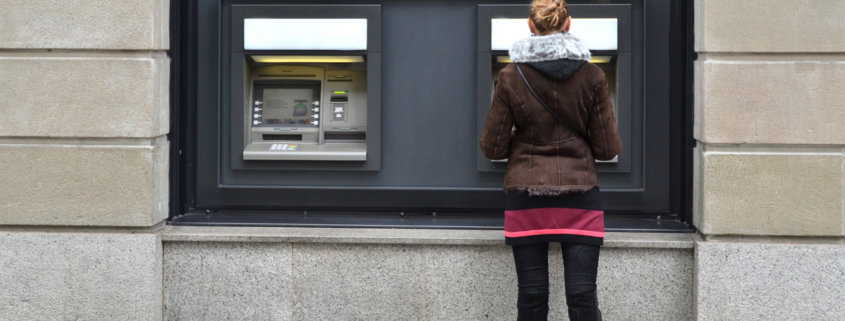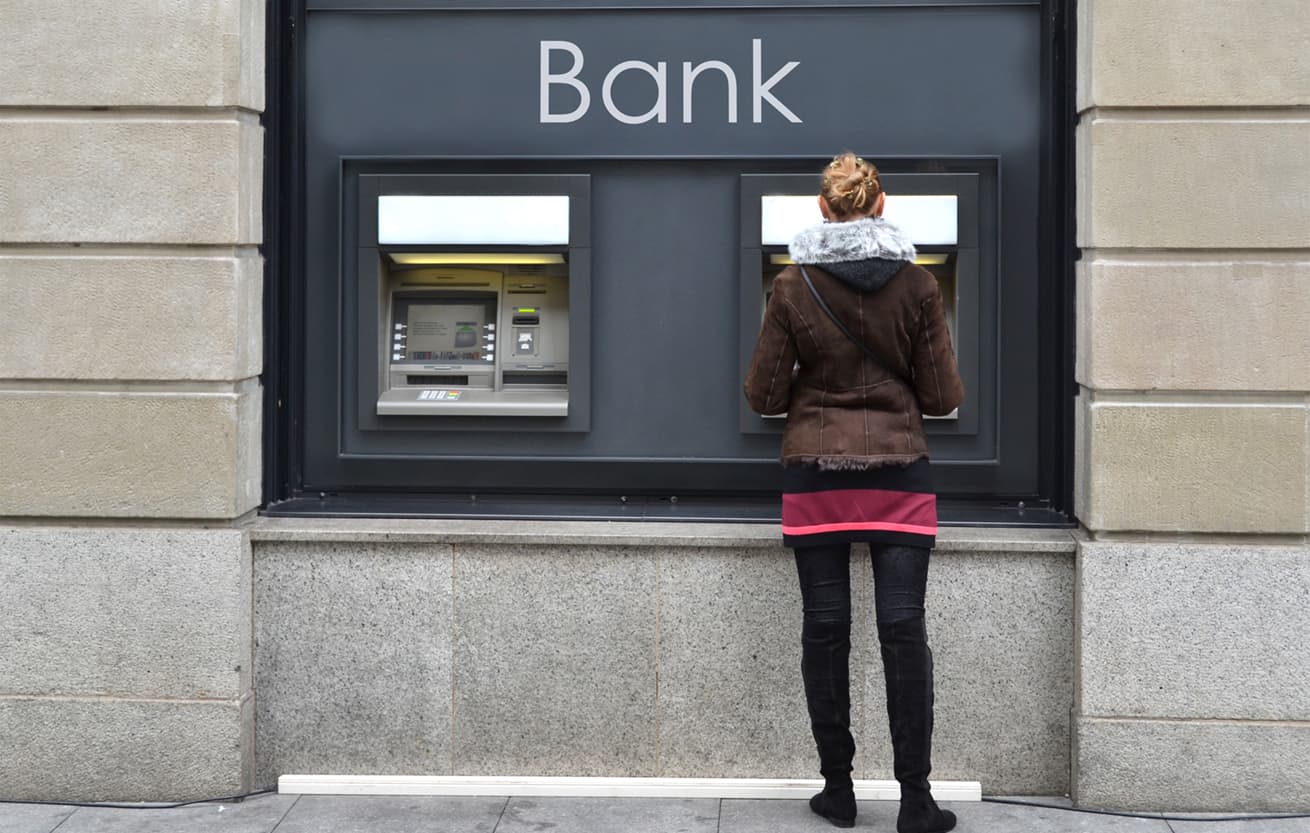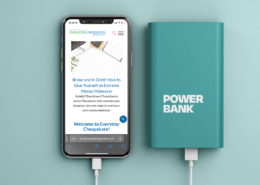Should You Be Worried About Your Money in the Bank?
On the off chance you haven’t been paying attention to world news, several banks in the U.S. have collapsed ( gone broke, busted, washed up, taken down, bankrupt) in recent days. Now others both here and abroad appear to be threatening to follow suit.
In a nutshell
What this means is that these failed banks accepted customers’ deposits, then lent out, and invested some of that money (which is what all banks do). However, due to inept management and lack of oversight, things went flying off the rails and I’m not talking about East Palestine, Ohio (another disaster all on its own).
Risky business
See where this is going? These banks made too many risky investments and loans to the point their debts outweighed their assets. Word got out; depositors panicked, sending them flying to the bank to withdraw all of their cash. And that caused what is known as a “run on the bank” cue the movie, It’s a Wonderful Life.
Sorry, out of cash
When everyone shows up to withdraw money at the same time, and the bank doesn’t have that much reserve cash sitting in its vault to comply, the bank goes belly up, otherwise known as insolvent.
Is it contagious?
This brings us to today’s topic. Is this situation contagious? Might your bank be in similar trouble? Should you take your money and run? That’s a tough question. You’re the only one who can make that decision, however experts I have consulted would not necessarily give us that advice.
There are limits
Nearly all national and regional banks in the U.S. carry insurance issued by the FDIC (Federal Deposit Insurance Corporation) to cover this very thing. When an insured bank (or credit union) goes under, depositors are made whole even if the bank runs out of cash. But only to a limit. Both the FDIC and NCUA standard limit is $250,000 per depositor, per insured bank, for each account ownership category.
If your balances are less than $250,000 you need not panic. Or even be concerned. If your total balance exceeds $250,000 you need to spread it around in more than one bank to make sure you remain 100% covered.
Pro Tip
There is a calculator called “EDIE” at the FDIC’s website that works well for determining your FDIC or NCUA insurance coverage:
For those who cringe at giving away personal information, if you use this calculator just know that when it asks you to enter your bank’s name, you can actually enter any bank—the rules are the same no matter what bank you select.
What’s the alternative?
Where would you put it if you succumb to worry and pull all of your money from the bank? Under the mattress doesn’t seem like a very good idea as there it is subject to both thievery and fire.
Another idea would be to bury it in the backyard. And how safe is that? You’re overcome with worry now just imagine leaving home wondering who might have seen you dig that hole? This too is not a good idea.
That leaves investing it in the stock market or responding to a late-night TV commercial to buy silver (or gold). You’ve probably already taken that route if you possess the smarts and education that kind of move requires. So let’s take that option out of the picture, too.
Trust but verify
Provided that your bank is FDIC insured (NCUA for credit unions)—look for signs all over the lobby, ATMs, front door, and website indicating this coverage—and you have not deposited more than a quarter of a million bucks, you can relax. Your money is as safe today as it was last month and for years before.
That being said, wisdom dictates that you keep an eye on things. Check your balances every day using the bank’s app or online service. Balance your statements monthly. Do not assume anything. Always verify.
Instead, worry about this
A situation could happen any day for which the FDIC would not come to your rescue. Sure, your money is safe in the bank, but what if your access to your money is cut off? This will happen if there is a power outage caused by any number of disasters
Everything in a bank, including the locks on the doors and access to the vault, is controlled electronically. Without power, the manager might be able to open the door with a key, but that’s about it.
ATMs will be down. Credit cards won’t work because that little credit card machine will go done and there will be no way for retailers to accept your card for payment.
Grocery store checkout computers and cash registers will go dark. There may be personnel available to accept cash, but will they be prepared with sufficient currency and coins to give you change if all you have are big bills?
Cash on hand
You need to take money out of the bank—enough cash to fund your basic living expenses should there be a power outage. Start with enough for a week, then add to it from there as you are able.
Don’t make it a stack of $100s. Small denominations make more sense for all the reasons above. And make sure you have a good supply of coins, as well.















is using a Credit union bank a good choice!
Thank you so much, Mary, for this timely article. I hear a lot of “doom and gloomers” on You Tube out there looking for the clicks by using click bait, telling us the sky is falling! This has concerned me so it is good to know.
First, I love reading your column, Mary. You always share some excellent advice here. The same with today. Not much more to add except that I have been in a few of these situations first hand and it can be scary. I was in a supermarket line waiting to check out when I lived in Colorado and the power went out. Fortunately, the cashiers all had calculators and were able to process cash paying and check paying customers (small town) with id out, but others had to go home. Credit cards didn’t work. Another time, I was in a Credit Union when I lived in Los Angeles and the computers were down. The manager of this small cu who served military people knew every customer’s face and just wrote down our names, acct’s and gave us our withdrawals to take care of later. BUT I was very fortunate. Because later down the line while in a store in Mississippi when the power went down, the store closed and sent all the customers home: they didn’t know what to do. I had some friends who got stuck in a Walmart in that same Colorado city when the power went out. Walmart locked the customers inside and wouldn’t let anyone out, on two different occasions. Not legal but Walmart did it. Important points; always keep some cash on hand; Never put all your eggs in one basket, especially your money. My grandmother lived through the depression and didn’t trust the banks. She preferred her freezer. Not safe now, but back then another world. I won’t tell you my age but I’m retired U.S. Coast Guard and I remember a world without cell phones and smart tvs and I’m not that old, yet. I don’t have all our accounts in one bank and I’ve diversified our savings, investments and even retirement accounts. There is no guarantee that they all won’t go belly up at the same time, but less of a chance they will. And if a store locks you in, call the police because they can not legally do that.
hate to say it but i am over 75 and am old school – sometimes that isn’t so bad bc when tech fails at least you can do manually, if you learned it.
Hi Mary,
What about online saving accounts that you can’t go to the back and withdrawn , you have to transfer money to another bank. Could they collapse? Don’t big banks guaranty your moneys safe.
Wouldn’t we be able to withdraw after the mad rush?
I understand that banks don’t have a lot of money in their safes but what could I do with the online saving account. And we have 2 large different accounts in which Direct deposits go in them. I always withdraw what I need for 2 weeks and then pay my bills online. I am a little concern. I have never in my lifetime heard this happening.
Thanks Mary for the up date and for being here for us all!
Excellent advice, Mary! You hit the nail on the head.
SVB collapse was a result of not having a risk assessment manager at this bank along with low yielding investments that are now worth less than face value due to higher interest rates because of inflation. All because of decades-long overspending by our govt!
Or for credit unions, NCUA insured.
Yes, Chris as stated in the post!
Hi Mary,
Another thing to do is this: Look over the Board of Directors. One bank that was an option for us to put our ‘overflow’ money in hasn’t updated the BoD website since 2016 and gave NO background on any of them. Also, their ‘mission statement’ was a bunch of high school ‘feel good’ word salad. Not serious people. The bank I chose has a BoD where all of them still have jobs in the real world, e.g., energy sector, minerals, etc. Also, I looked at the Pillar 3 disclosure forms. Their capitalization was very diversified in terms of sectors and so was their exposure profile. I’m a lay person, I can figure this out. So can anyone else, my IQ isn’t going to impress anybody. It’s all online and if it, isn’t you don’t want that bank. Transparency means a lot. So am I 100% confident? No. But it’s better than flying blind. I hope this helps, I know we’re all a bit anxious. Thanks for everything, Mary, you’ve become part of my day. A good part.
Excellent advice, Pamela. So happy to know you’re out there … every day!
I can’t forget 9/11 when our biggest bank in Minnesota only allowed $200 withdrawals per day for a couple days.
Oh yes, that can happen! Thanks for bringing that up.
Thank you Mary. I appreciate reading your comments everyday.